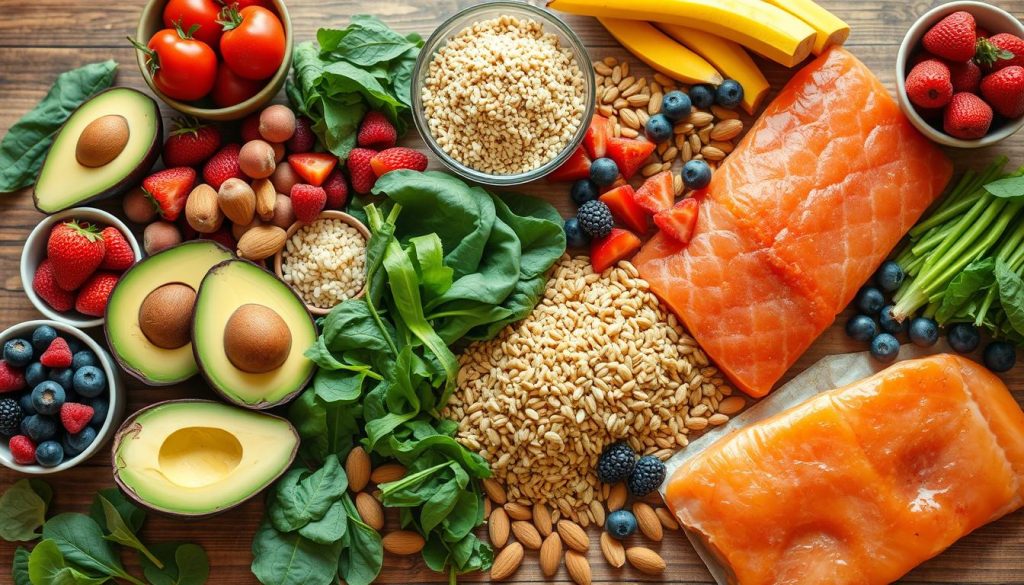Starting a recovery journey can feel scary and exciting. In this guide, we’ll show you how to get back your physical and mental health. If you’re recovering from sickness, injury, or tough times, we’ve got your back. We’ll give you the tools and knowledge to find your strength again.
Recovery is more than reaching a goal; it’s a journey to find your inner strength. We’ll look at ways to help your body heal and support your mind. You’ll learn to see the strength that’s always been inside you.
Let’s start this journey together. Every step you take is a win. Every challenge is a chance to grow. We’ll build a strong foundation for a life full of wellness and strength.
Embracing the Journey of Recovery
Recovery changes us in big ways. It’s about changing how we think. By choosing a positive mindset, we can face challenges with hope and strength.
Redefining Your Mindset
The road to recovery is full of twists and turns. But, by changing how we see things, we can find hope. We can celebrate our small wins and the progress we make.
Celebrating Small Victories
It’s key to celebrate our small victories. Every step forward shows our strength and willpower. By recognizing these moments, we build confidence and keep moving forward.
Remember, recovery is a journey with ups and downs. But with a positive mindset and celebrating our wins, we stay on track. Every day, we can make small steps towards a better tomorrow.

The Power of Self-Care
On our journey to recovery and wellness, self-care is key. It helps us manage stress, relax, and feel more mindful and kind to ourselves. This section will look at various self-care methods to help you on your wellness journey.
Managing stress is vital in self-care. Techniques like deep breathing calm our minds and bodies. Mindfulness meditation, focusing on the now, also reduces stress and brings peace.
- Try different breathing exercises, like the 4-7-8 method, to find what works for you.
- Make time each day for mindfulness meditation, even if it’s just a few minutes.
Journaling is another helpful self-care activity. Writing down your thoughts and feelings helps you understand and process them. It’s a healthy way to deal with emotions.
Self-compassion is also crucial for wellness. Being kind to ourselves counters negative self-talk during recovery. Do things that make you feel loved, like taking a warm bath or doing a hobby you love.
Self-care isn’t the same for everyone. Try different methods to see what works best for you. By focusing on your well-being, you’ll be stronger and more resilient on your recovery path.
Nurturing a Supportive Network
Having a strong, supportive network can really help your recovery. It’s great to have loved ones and communities to lean on. They offer emotional, practical, and moral support.
Leaning on Loved Ones
Your family, friends, and close friends are key during recovery. They offer love and understanding. This makes you feel stable and secure.
Don’t be afraid to reach out and share your story. Let them care for you and offer empathy.
Finding Strength in Community
Being part of a recovery community is powerful. It’s a place to meet others who understand you. You’ll feel less alone and get support.
It’s a chance to share experiences and find motivation. This helps you keep moving forward.
| Benefits of a Supportive Network | Examples |
|---|---|
| Emotional Support | Encouragement, empathy, and a listening ear from loved ones |
| Practical Assistance | Help with daily tasks, transportation, or accessing resources |
| Moral Support | Celebrating your victories and providing motivation during challenging times |
| Sense of Belonging | Connecting with recovery communities and finding shared experiences |
Building a supportive network is key to recovery. It helps you find strength in loved ones and community. This builds a strong foundation for wellness.

Fueling Your Body for Recovery
Good nutrition is key for recovery. It helps your body heal and feel better. Eating whole, nutrient-rich foods supports your recovery and well-being.
Nourishing with Whole Foods
Eating a balanced diet with whole foods helps a lot. These foods give your body the vitamins and minerals it needs to heal. Include a variety of whole foods in your meals, like:
- Lean proteins like chicken, fish, and legumes
- Colorful fruits and vegetables
- Whole grains such as quinoa, brown rice, and oats
- Healthy fats from nuts, seeds, and avocados
Choosing a balanced diet and anti-inflammatory foods boosts your gut health. This helps your body recover better. These nutrient-dense meals give your body what it needs to heal and get strong again.

Recovery is a long journey, not a quick race. Eating the right whole foods sets a strong base for healing. It helps your body to do well and recover fully.
The Importance of Recovery
Recovery is more than just getting back to normal. It’s a journey that can change our lives. It brings us a new sense of purpose and well-being.
Recovery is key to our long-term health. It helps us face life’s challenges better. We become stronger and more aware of our growth.
Recovery is about more than just health. It opens doors to a better life. We find meaning, joy, and a deeper connection with ourselves and others.

